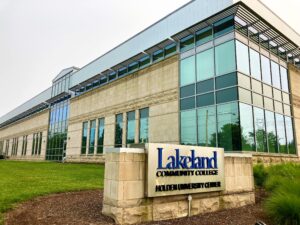Yesterday, I wrote about the pandemic and its impact on working mothers. I said that COVID-19 has created two classes of women. That’s not really right, though. Two classes of women existed before the pandemic. However, COVID-19 highlighted the stark differences between these two groups in a way that nothing else may have.
Without doubt, COVID-19 has been a wrecking ball. I don’t want to minimize the fact that nearly 1.1M people in the United States have died from this disease. Worldwide, the death toll is approaching 6.65M. These deaths are the worst of COVID-19’s many negative outcomes. Twenty percent of people who have contracted COVID-19 suffer from “long COVID” side effects well after the disease has medically resolved.
Socially, COVID-19 has also wreaked havoc, especially among low-income households. No one asks to live on the edge today, but financial insecurity doesn’t just affect low-income households and working mothers. Nearly two-thirds of Americans live paycheck-to-paycheck. Surprisingly, half of these folks make six figures.
So, if a person earning six figures can’t make ends meet for two weeks at a time, how is a working mother making minimum wage supposed to? Community colleges were designed to support working mothers. Their mission was to give low-income households a hand up.
It’s a shame to say that Washtenaw Community College does not see this as its mission. It is incomprehensible to me that the WCC Administration can close the on-campus childcare center while making plans to use the tax money collected to fund education to build a hotel that caters to people who neither live nor work in Washtenaw County. Meanwhile, 13% of the County’s population live below the poverty line.
Washtenaw County’s working mothers deserve better
This Administration has made no serious effort to establish academic programs that will support new economic growth in the county or lure new industries here. Instead, WCC now offers twice as many non-degree certificates as associate degree programs. That’s not exactly a pathway out of poverty.
A legion of highly compensated executives pat themselves on the back in press releases for creating training programs that lead to $12 per hour jobs. The minimum living wage in Washtenaw County for one person with no children is $19.12. (That’s $40,000 per year.) With one child, the minimum living wage for one working adult in Washtenaw County is $41.31. (Also known as $86,000 per year.)
The WCC Administration needs to become very realistic about how much money it takes to live in Washtenaw County. (Because so few of them actually live here, I can understand why this may be a point of confusion.) They need to establish some very firm standards for their occupational degree programs that reflect Washtenaw County’s cost of living. That likely involves eliminating occupational programs that do not lead to jobs in the $40,000+ salary range and replacing them with those that do. It will also likely require WCC to refocus on degree programs instead of non-degree certificates that further raise Michigan’s “some-college-no-degree” population.
Only in this way will WCC begin to close the gap between the two classes of working mothers in Washtenaw County. In failing to do so, WCC will needlessly and unforgivably commit many of Washtenaw County’s single mothers and their children to a permanent place below the poverty line.
Photo Credit: Tim Dorr , via Flickr































